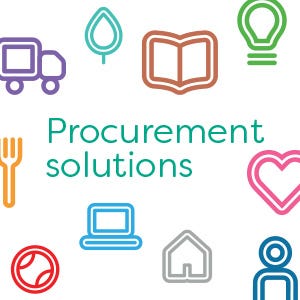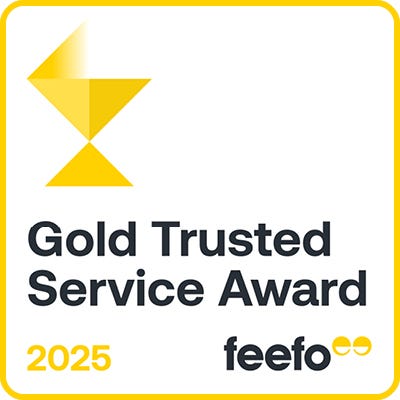Blog
The latest news, events and articles, including case studies, editorials, blog posts and featured products.
Document Management Solutions frameworks as an enabler for best practice


This blog post was written in conjunction with Iron Mountain who are on our Document Management Solutions framework (390) on Lots 1, 2, 3 and 4.
While there is a plethora of frameworks out there offering all kinds of services and products, a well-designed framework brings together products and services which fit together to support an overall best-practice approach. So rather than, for example, offering you the ability to buy scanning services in isolation, a good framework should encourage you to see this service in the context of your wider business plan for, for example, the input and outcome of that service.
ESPO's Framework 390 brings together services to enable you to manage the full information lifecycle, including:
![]() Storage
Storage
![]() Digitisation
Digitisation
![]() Secure destruction
Secure destruction
![]() Digital document storage and workflow
Digital document storage and workflow
![]() Information governance support
Information governance support


You can speak to any of the suppliers on the framework and ESPO to get a view on the best way to conjoin services, to get the optimal output for your strategic goals and ensure you are not missing anything. Both suppliers and ESPO can also help with detailed questions regarding the main charges which make up the component parts of different services, which core components and auxiliary services you are likely to need and examples of previous good practice.
Suppliers and ESPO have all worked with a range of organisations across the public sector and understand the needs and drivers of both the sector as a whole and the different sub-sectors within it, whether local government, NHS, agency or central government.
Key questions that Framework 390 can you guide you through
![]() If you are still storing hard-copy documents, is this a proactively considered part of your ongoing plan? Is that the best route for that particular record set and have you conducted a cost-benefit analysis?
If you are still storing hard-copy documents, is this a proactively considered part of your ongoing plan? Is that the best route for that particular record set and have you conducted a cost-benefit analysis?
![]() What is the ultimate plan for any hard-copy records you are storing?
What is the ultimate plan for any hard-copy records you are storing?
![]() If you are digitising documents, where are those documents going to be held before and after digitisation, in both their hard and digital formats?
If you are digitising documents, where are those documents going to be held before and after digitisation, in both their hard and digital formats?
![]() Are the hard copies going to be securely destroyed after digitisation? If so, how do you make sure you’ve planned that service?
Are the hard copies going to be securely destroyed after digitisation? If so, how do you make sure you’ve planned that service?
![]() Have you taken costs for this into consideration as part of your planning?
Have you taken costs for this into consideration as part of your planning?
![]() Are you aware of required retention periods for your documents and how are you going to ensure retention dates are applied across your inventory, both in hard and electronic copy?
Are you aware of required retention periods for your documents and how are you going to ensure retention dates are applied across your inventory, both in hard and electronic copy?
![]() How are you going to ensure that retention dates are acted on across your organisation?
How are you going to ensure that retention dates are acted on across your organisation?
![]() How do you ensure you are not storing redundant, obsolete or trivial information and have a defensible approach to destruction of this unrequired information?
How do you ensure you are not storing redundant, obsolete or trivial information and have a defensible approach to destruction of this unrequired information?
![]() How do you ensure that you are not building up repositories of digital records unstructured and ungovernable fileshares?
How do you ensure that you are not building up repositories of digital records unstructured and ungovernable fileshares?
![]() Are you making optimal use of automated workflows for any records you have decided to digitise? Or even for born-digital documents (so-called ‘digital paper' which can be even more difficult to manage than hard-copy records)?
Are you making optimal use of automated workflows for any records you have decided to digitise? Or even for born-digital documents (so-called ‘digital paper' which can be even more difficult to manage than hard-copy records)?
![]() What is going to happen to hard-copy records you have decided to keep at the end of your contract? If you are going to look at a tender or mini competition at the end of your contract, have you reviewed exit costs?
What is going to happen to hard-copy records you have decided to keep at the end of your contract? If you are going to look at a tender or mini competition at the end of your contract, have you reviewed exit costs?
Taking a planned, multi-year view will not only allow you to see the ‘light at the end of the tunnel’, but it will also enable you to manage stakeholders, make the best use of your budget and take the opportunity to get your records fully under the control of a proactive retention policy. But, there is no need to assume that ‘going digital’ means ‘scanning everything’. A planned, gradual approach will yield far better, further-reaching and much more economical results.
If you would like further information from ESPO, please contact our team via ICT@espo.org or 0116 294 4008.
For more information from Iron Mountain, please contact their team via bidmanagementwe@ironmountain.com.










